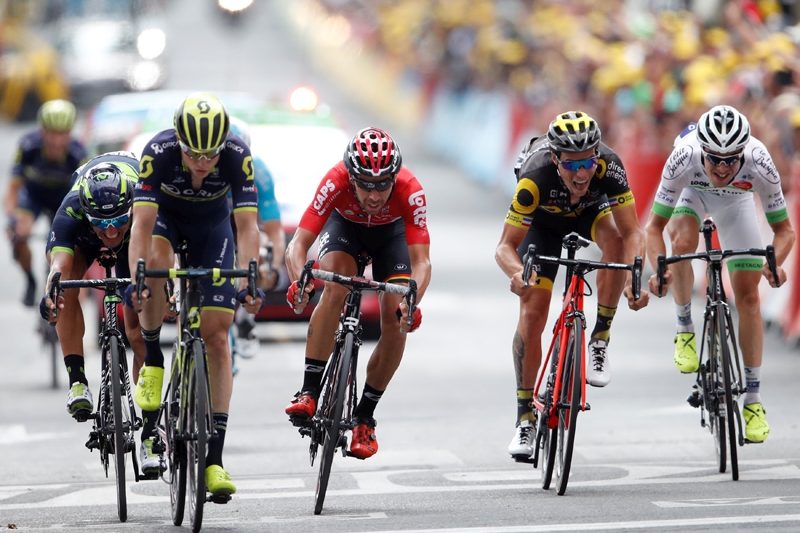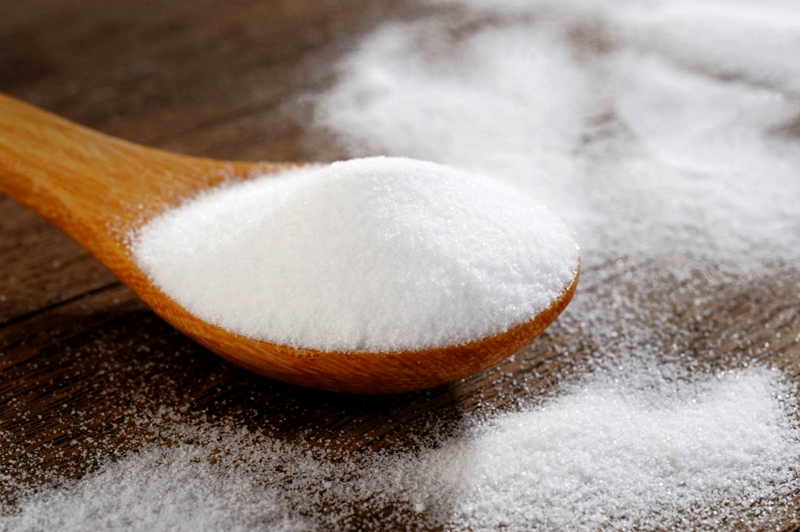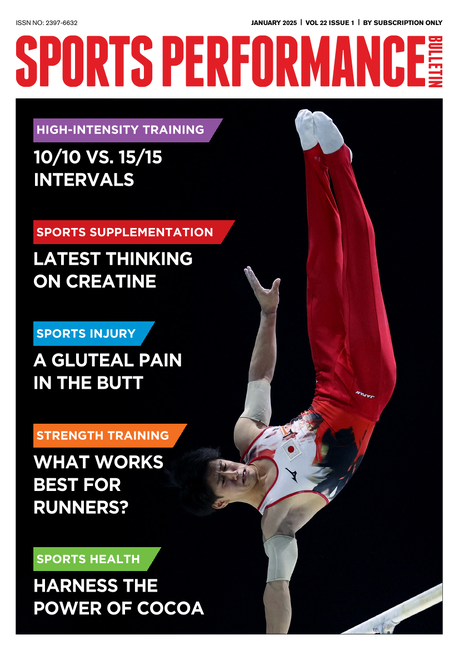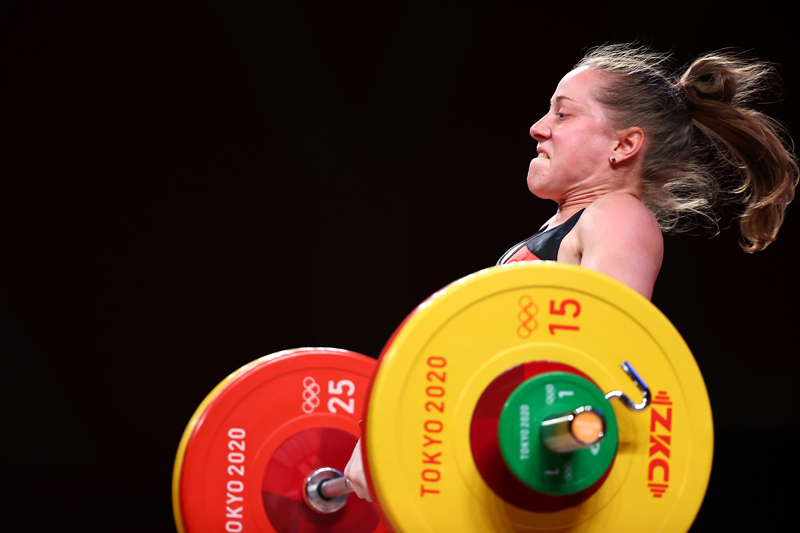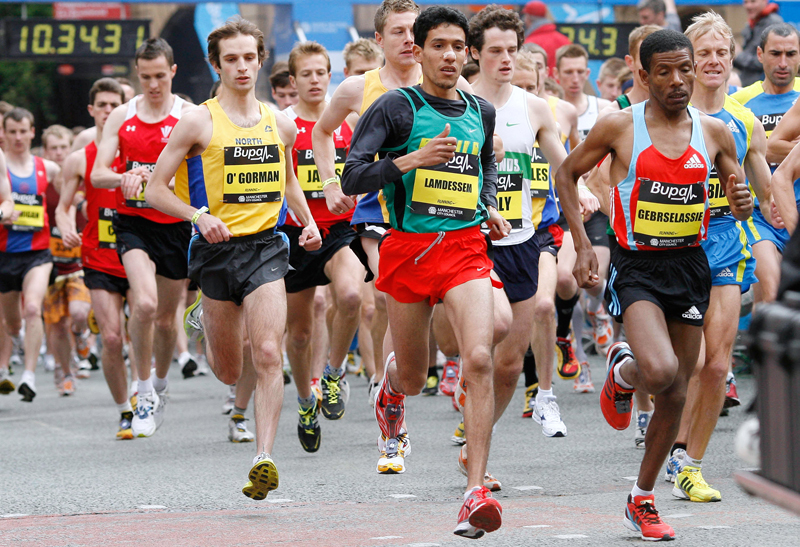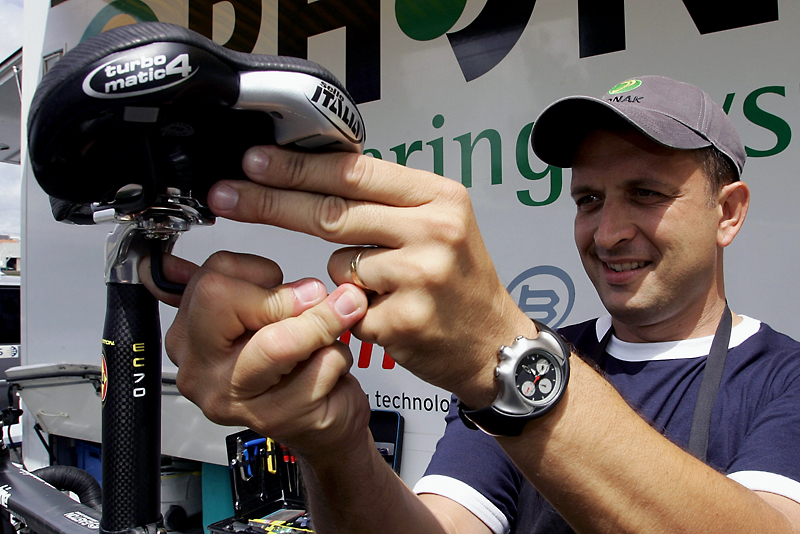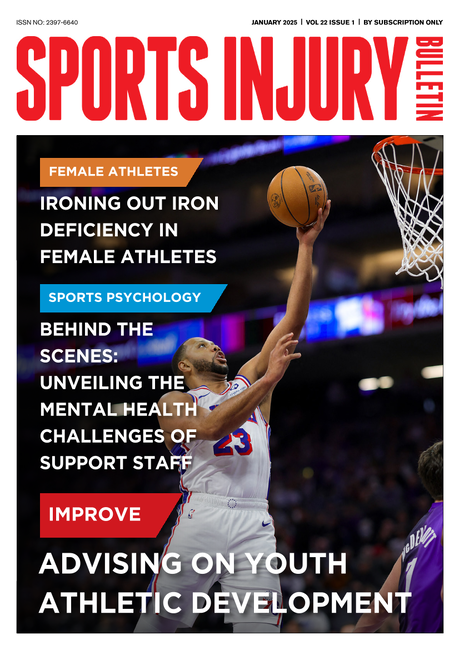You are viewing 1 of your 1 free articles. For unlimited access take a risk-free trial
Sodium bicarbonate: the old kid is back on the block!

Do the improved dosing protocols for pre-exercise bicarbonate supplementation really guarantee improved performance for athletes?
In the early 1980s, the use of sodium bicarbonate as a performance supplement became widespread, particularly for shorter-duration events such as 400-1500 meter running, rowing and short-track cycling at elite level. By helping to buffer the acidity produced in muscles during very intense exercise lasting around 1-5 minutes in duration, bicarbonate can help stave off some of the fatiguing effects of high lactate accumulation, enhancing performance in these types of events. However, after an initial surge of popularity, bicarbonate use waned as many athletes discovered that its use was often accompanied by unpleasant side effects such as nausea and gastric distress – severe enough in many cases to be counterproductive.Renewed interest
In more recent years however, there’s been a renewed interest in bicarbonate supplementation. That’s because research has demonstrated that that with careful administration, many athletes may find that they can reap the benefits of bicarbonate without suffering the drawbacks(1). In particular, it seems that a staged intake (spreading the intake over a 90-minute period rather than consuming in one hit – see figure 1) is much better tolerated by the tummy. In addition, consuming the required amount (usually put at 0.3 grams per kilo of body weight – around 20 grams for a 70kg athlete) much earlier before exercise takes place also seems to reduce gastric distress without impacting on the potential benefits (see this article for an in-depth discussion)(2).Figure 1: Staged or stacked approach to bicarbonate ingestion

By consuming 3 boluses of 0.1g per kilo of body weight (eg 3 boluses each of 7 grams for a 70kg athlete) over a 90-minute period, the total dose of 0.3g per kilo can be achieved, but with less gastric distress than a single large dose.
Given the above, why hasn’t bicarbonate supplementation once again become popular among athletes? Well, despite these more successful dosing regimens and the majority of studies finding positive results with these regimens, there’s still some ongoing debate about just how effective bicarbonate supplementation really is, especially when it comes to non-elite sportsmen and women. Examples of studies over the past decade that have found inconsistent benefits for pre-exercise bicarbonate supplementation (despite better dosing) include:
- A study that found no improvement in performance or perceived exertion among young semi-professional soccer players who performed repeated anaerobic running tasks(3).
- A comprehensive review study (pooling data from a number of previous studies) that found no benefits in a quarter of studies on event durations of less than 4 minutes and in almost a half of studies on event durations of over 4 minutes(4).
- A study that found bicarbonate supplementation did not improve elite women's team sport running or field hockey skill performance(5).
- A study on male and female wrestlers, which showed that while the men responded well to a ‘stacked’ dosing regimen, this same approach did not produce performance gains in the female wrestlers(6).
Bicarbonate for recovery?
If timing bicarbonate ingestion is tricky because of individualized variations in kinetics, could it instead be used as between bouts of intense exercise in order to accelerate recovery and produce better subsequent performance? Since lactate accumulation in muscles during intense exercise causes fatigue, and the clearance of that lactate is a part of the recovery process, it follows that it should, in theory at least, help athletes who need to perform multiple bouts of intense exercise in a single day – for example, 100-400m swimmers performing heats to reach the later stages of competition.Although there’s little data on this, a 2019 study on bicarbonate ingestion to aid recovery for subsequent high-intensity performance in boxers produced promising results(7). In this study, seven elite male professional boxers performed an initial bout of exhaustive exercise comprising of a boxing-specific high-intensity interval running (HIIR) protocol, followed by a high-intensity run to volitional exhaustion (TLIM1) on two separate occasions. Ten minutes into the recovery period on both occasions, the boxers ingested one of the following:
- A drink containing 0.3 grams per kilo of bicarbonate
- A drink that was a taste-matched placebo (ie zero bicarbonate)
In both trials the subjects then completed a boxing specific punch combination protocol followed by a second high-intensity run to volitional exhaustion (TLIM2) 65 minutes after ingesting the drink. The researchers then compared the time to exhaustion in the second run compared to the first for both trials (bicarbonate vs. placebo). The results showed that the duration of the second run (after recovery - TLIM2) was significantly greater after bicarbonate ingestion compared to placebo (see figure 2), which indicated that the bicarbonate had accelerated recovery and enhanced performance in the later bout of exercise.
Figure 2: Change in performance from TLIM1 and TLIM2 following bicarbonate or placebo ingestion

Time to exhaustion in the second bout of exercise averaged 170 seconds after bicarbonate ingestion vs. 75 seconds after placebo.
Recreational athlete recovery
Can recreational athletes expect similar recovery benefits from ingesting bicarbonate in between bouts of very high-intensity effort? Again, there’s little data in the literature on this topic, but a newly published study on the effects of post-exercise bicarbonate ingestion on acid-base balance recovery and time-to-exhaustion (TTE) running performance in recreational runners suggests that these benefits may not be universal(8).Eleven male recreational runners were assessed in the lab for their maximal sustained running velocity (v-VO2max) using a graded exercise test. There then followed two trials; in each trial, the runners ran at their maximal sustained velocity until exhaustion (TTE1), rested for 40 minutes then repeated the running test to exhaustion (TTE2). The two trials differed however; in one trial, the runners consumed 0.3g of bicarbonate per kilo immediately after TTE1, whereas in the other trial, they consumed an inert identical flavored placebo drink (sodium chloride).
As well as recording how long the runners managed to run during TTE1 and TTE2 in both trials, the researchers also took measurements of the runners’ blood acid-base balance and bicarbonate levels, at baseline, after TTE1, after 35 minutes of recovery following TTE1 and then again after TTE2.
The results showed that overall, when the runners had ingested bicarbonate at the start of their recovery period, they managed to maintain their maximal run for an average of 14.3 seconds longer than when they had consumed the placebo. However, an analysis showed that these gains from bicarbonate were too small to be considered statistically significant, which means that the researchers couldn’t be confident the bicarbonate ingestion had produced any meaningful advantage. There were also no differences in blood pH and bicarbonate levels between the two trials. Interestingly however, when the data was analysed on a ‘per runner’ basis, the researchers found a lot of inter-individual variations; some runners responded very positively to bicarbonate, while other showed no response at all.
Practical implications
What should athletes make of the more recent research into bicarbonate? Here are some of the main conclusions we can draw:- When using a staged or stacked approach, the reduced gastric distress appears to result in increased performance for effort durations of one to four minutes. Once the duration of effort progressively exceeds four minutes, the benefits become steadily less significant.
- The bicarbonate benefits are most apparent at very high intensity effort levels; for this reason, the results with recreational athletes (who typically do not achieve the extremely high intensities of elite athletes) may be less significant.
- Regardless of sporting level, the research suggests that there are a lot of inter-individual variations in bicarbonate response; some athletes respond very well while others fail to gain significant benefits. These variations may arise due to the differing rates of bicarbonate absorption and clearance in different athletes.
- Recent research suggests that when repeated high-intensity efforts are required – for example during heats – consuming bicarbonate at the beginning of the recovery period between the two efforts may improve performance in the second effort.
References
- J Appl Physiol. 2006; 101(3): 918-925Peak Performance 2010; 293: 1-4
- J Strength Cond Res: July 2012 - Volume 26 - Issue 7 - p 1953-1958
- Int J Sport Nutr Exerc Metab. 2020 Jul 15;1-8
- J Sports Sci Med. 2019 Jun 1;18(2):271-281
- Physiol Rep. 2018 Sep;6(19):e13818
- Sci Rep. 2020 Feb 5;10(1):1878
- Front Nutr. 2019; Oct 6: 155
- Appl Physiol Nutr Metab. 2021 Mar 17. doi: 10.1139/apnm-2020-1120. Online ahead of print
Related Files
Newsletter Sign Up
Testimonials
Dr. Alexandra Fandetti-Robin, Back & Body Chiropractic
Elspeth Cowell MSCh DpodM SRCh HCPC reg
William Hunter, Nuffield Health
Newsletter Sign Up
Coaches Testimonials
Dr. Alexandra Fandetti-Robin, Back & Body Chiropractic
Elspeth Cowell MSCh DpodM SRCh HCPC reg
William Hunter, Nuffield Health
Keep up with latest sports science research and apply it to maximize performance
Today you have the chance to join a group of athletes, and sports coaches/trainers who all have something special in common...
They use the latest research to improve performance for themselves and their clients - both athletes and sports teams - with help from global specialists in the fields of sports science, sports medicine and sports psychology.
They do this by reading Sports Performance Bulletin, an easy-to-digest but serious-minded journal dedicated to high performance sports. SPB offers a wealth of information and insight into the latest research, in an easily-accessible and understood format, along with a wealth of practical recommendations.
*includes 3 coaching manuals
Get Inspired
All the latest techniques and approaches
Sports Performance Bulletin helps dedicated endurance athletes improve their performance. Sense-checking the latest sports science research, and sourcing evidence and case studies to support findings, Sports Performance Bulletin turns proven insights into easily digestible practical advice. Supporting athletes, coaches and professionals who wish to ensure their guidance and programmes are kept right up to date and based on credible science.
